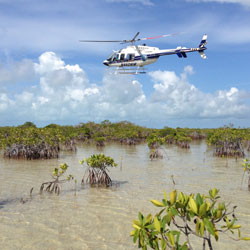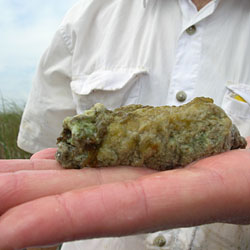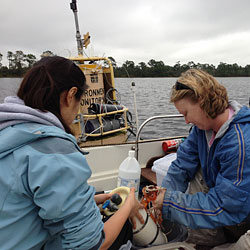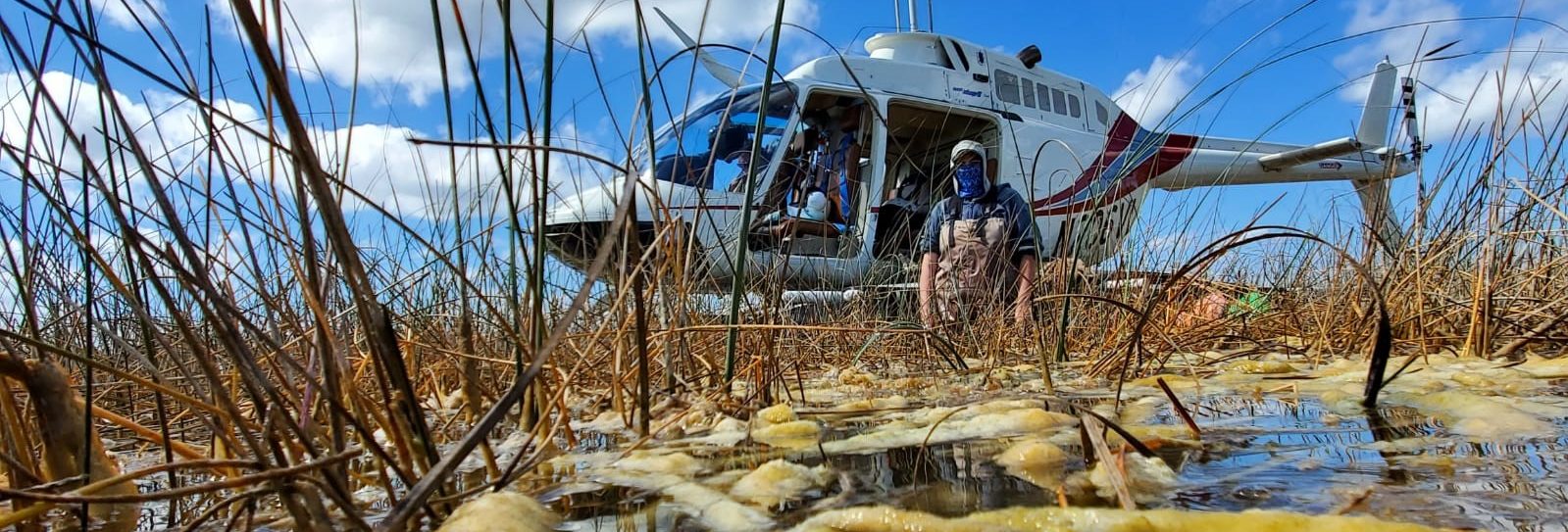Aquatic ecosystems, particularly their algal communities, can serve as sentinels of environmental changes occurring at local to global scales. Our research focuses on how algae regulate the dynamics of ecosystems and how changes in the abundance of algae species can be used to diagnose sources of environmental change.
- For a list of publications from our lab search here for pubs related to the FCE LTER program (Last Name = Gaiser) or here for a full list.
- Much of our data is publicly available from the Environmental Data Initiative.

Long-term dynamics of coastal wetland ecosystems
Coastal wetlands are rapidly changing in response to accelerating sea-level rise, increasing severity of storms and hurricanes, and changing patterns of land and water use related to human activities. Benthic algae are abundant in coastal wetlands, and play a keystone role by regulating gas and nutrient concentrations, providing food and habitat for aquatic consumers, and accreting soils. Our research focuses on the role of algae in the Everglades and other coastal wetlands subject to sea level rise, land use change, and large-scale restoration in the context of the Florida Coastal Everglades Long Term Ecological Research Program and the Comprehensive Everglades Restoration Plan.

Benthic algae ecology and taxonomy
Benthic microbial mats are a common feature of coastal wetlands. They are composed of algae, bacteria, and fungi embedded within a matrix of mucilage and detritus, and are a major contributor to ecosystem biodiversity and carbon cycling. We conduct long-term surveys and experimental research to understand the role of algae, particularly diatoms, in microbial mats. We track species distributions to determine how coastal wetlands are changing, providing tools for interpreting the success of restoration in projects in the Everglades and other similar tropical and subtropical wetlands. Due to the novelty of the Everglades algae flora, our lab routinely describes species new to science.

Lakes as sentinels of climate change
While much of our lab’s research focuses on coastal wetlands, we are also studying subtropical lakes in the context of research in the Global Lakes Ecological Observatory Network. The dynamics of algae in subtropical lakes are poorly understood, which is concerning considering the rate at which these latitudes are developing and experiencing the influences of climate change. Our studies include long-term deployments of high-resolution sensors in lakes, especially Lake Annie at Archbold Biological Station to help determine the drivers and consequences of algal community change at many temporal and spatial scales.
Dr. Evelyn Gaiser
George M. Barley, Jr., Eminent Scholars Chair
Institute of Environment
11200 S.W. 8th Street, CASE 253
Miami, Florida 33199
305-348-6145
Email: gaisere@fiu.edu
